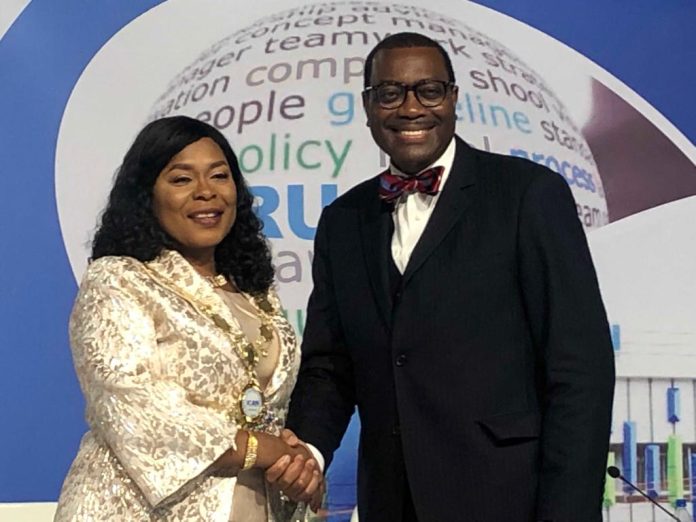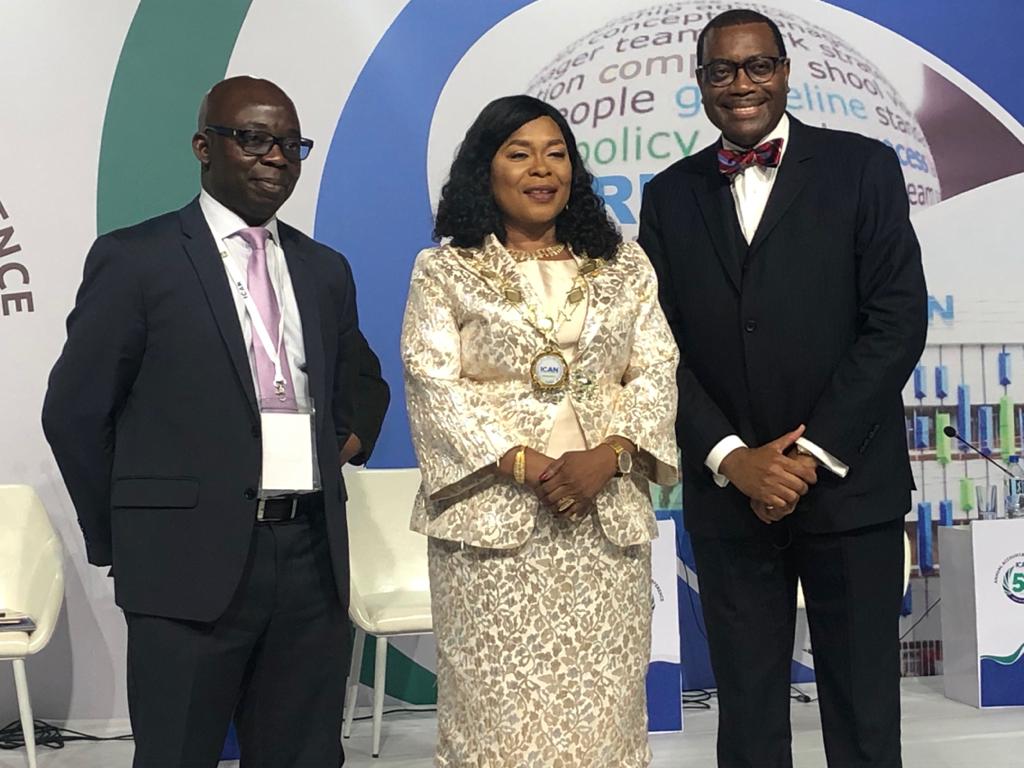President of the African Development Bank Group, Dr Akinwunmi Adesina on Tuesday disclosed why Nigerians lack trust in the government.
The former Minister of Agriculture said that the failure of successive administrations to fulfil their promises to the people, and also the crass display of wealth by political leaders are some of the factors that fuel mistrust among citizens.
Adesina said this during the 51st Annual Accountants Conference held by the Institute of Chartered Accountants of Nigeria.
In his address titled, ‘Trust in Governance’, the AfDB boss harped on the need for the Nigerian government to win the trust of its populace, especially the youths.
He said the government must learn from other countries like Singapore on how to tap into Nigeria’s huge youth asset, if not they will “simply remain illiquid assets until we unlock their full potential.
“A leader’s reputational equity rises or falls on the basis of results, trust and integrity. Consequently, leaders must mean what they say and say what they mean, as well as deliver on their promises. When the impact of your output is tangibly felt, trust is the end result.
“We must earn the trust of the youth of Africa and use them as a potent force for national development. Forgotten, undervalued and underused, a lot of youth today have a high level of distrust for governments. That we must change.
“Just think of the numbers and the implications. Today, 60% of Africa’s 1.2 billion people are under the age of 25.
“We must prioritise the youth because what we do with and to our youth will determine our future. We hold our positions in trust for the present and future generations,” he said.
Adesina also harped on the need to enthrone rule of law and an independent judiciary as a means to win the trust of the masses.
He said, “Leadership is a position of trust. This includes trust in the judicial system. The justice system is what sets the boundaries on acceptable conduct, for people, institutions, governments, and society in general.
“However, when judicial systems are subjugated to the dictates of the executive arm of government or controlled and manipulated by powerful individuals, trust is eroded.
“Any nation that does not respect and uphold the rule of law can never develop. It will only atrophy, or descend into chaos.
“There is a direct and strong correlation between the rule of law and investments. Think of it: who will want to invest in a place where there is no rule of law, respect for individual rights, freedom of speech, freedom of association, protection of property rights and intellectual property rights, copyrights and patents, and rights to legally acquire and dispose of assets?
“GDP does not just grow. GDP grows because of economic activities, and economic activities thrive where there is a rule of law.”
According to Adesina, an efficient public sector is vital to any nation, and government must show accountability in running the civil service.
“If the civil service, the engine room of government, is faulty, nations become faulty, and society suffers.
“We must revamp the public sector to make it leaner, much more professional, with transparent systems, enhanced public accountability, and a performance system where citizens rate the quality of services provided.
“The fundamental basis of any society is the social contract between the government and citizens. This social contract is embedded in the payment of taxes. Taxes form a significant part of government revenue.
“Governments are always eager to collect taxes, but the real question is whether there is congruence between tax revenue generation and accountability to citizens in fulfilling expected social contracts.
“While progress is being made the challenge, however, is that in many parts of Nigeria, citizens do not have access to basic services that governments should be providing as part of the social contract. People sink their own private boreholes to get water. They generate their own electricity oftentimes with diesel. They build roads to their neighbourhoods. They provide security services themselves.
“When citizens bear the burden of high implicit taxes, and governments or institutions fail to provide basic services, trust in governance is eroded.
“To build trust with the society, governments must fulfil their part of the social contract, and citizens must also pay their own fair share of taxes. There must be mutual accountability. We must enforce social contracts.”
Adesina also attributed lack of financial transparency as a major thing that erode trust of citizens from their government. “Governments should be opened up! Citizens have a right to know how public finances are being used.
“This is why I believe that we must develop a ‘People’s Index of Governance’ with citizen accountability forums.
“Lifestyle audits are needed for leaders. Leaders must live within their means, and their means must be honest means.
“When citizens see their leaders living transparently, being sensitive, not lavish in lifestyle but delivering good governance, they will trust governments.
“But when people feel that their resources are mismanaged or being used for opulence, widening the gap between the leaders and those they are leading, it builds distrust and despondency, which then permeates the fabric of society,” the former minister said.

























